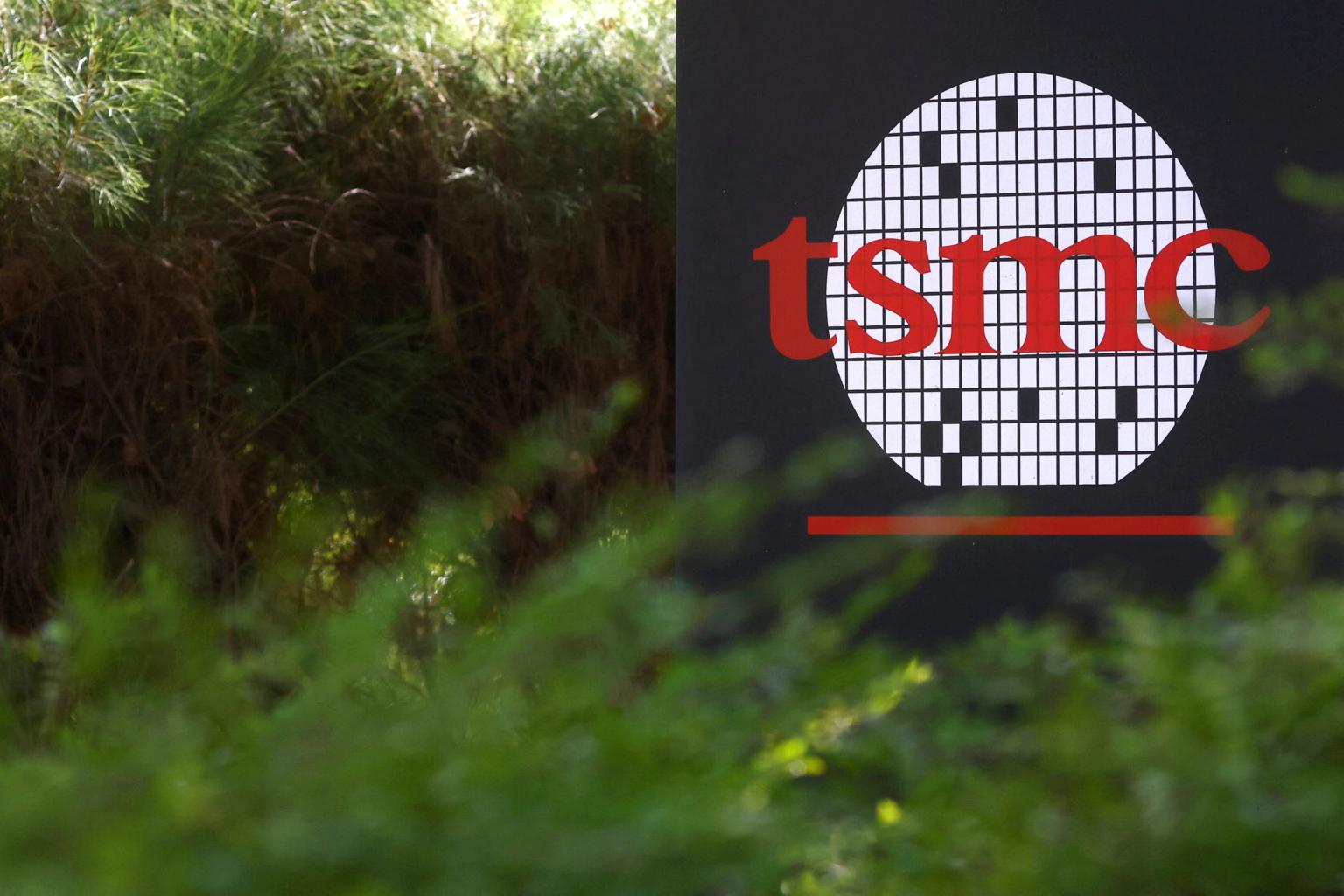Chip shortage may turn into oversupply in 2024 for Asian foundries: Report
Sign up now: Get ST's newsletters delivered to your inbox

Morningstar believes TSMC will be the only foundry able to sustain the strong financial performance it has seen since Q3 2020.
PHOTO: REUTERS
SINGAPORE (THE BUSINESS TIMES) - The chip shortage plaguing the semiconductor and electronics industries will likely ease in the second half of 2022 after automotive-related backlog is addressed in the first half, according to a Morningstar sector report.
This will be followed by an oversupply in 2024, once most of the pipeline foundry capacity announced recently is operational, despite trends like the metaverse, electric vehicles and artificial intelligence.
Morningstar equity analyst Phelix Lee said: "Our tabulations suggest there will be a semiconductor glut even if all these topics live up to their hype."
The research team remains bullish on contract chipmaker Taiwan Semiconductor Manufacturing Company (TSMC). This is given TSMC's resilience, wide exposure to high value-added verticals like 5G and high-performance computing systems. The company also has a relatively small exposure to commoditised legacy manufacturing processes.
Morningstar believes TSMC will be the only foundry able to sustain the strong financial performance it has seen since the third quarter of 2020.
The research team also expects TSMC to outperform the market with a 14.3 per cent revenue compound annual growth rate from 2020 to 2025. This underpins the research team's fair value estimate of NT$800 (S$39) per share.
Technological developments like the metaverse, Internet of Things (IoT) and electric vehicles will likely cause varying levels of impact to the semiconductor industry.
Morningstar said the metaverse trend will likely benefit semiconductor companies in a huge but uneven way. Large-scale manufacturers that have the capacity to produce chips at advanced facilities will benefit the most.
"Since many of the tasks that take place in a metaverse involve real-time processing of immense amounts of data, this will require the chips involved to use advanced process nodes that are only available at TSMC, Samsung and Intel," Mr Lee said.
Smaller foundries such as United Microelectronics Corporation, Semiconductor Manufacturing International Corporation and GlobalFoundries may benefit only slightly in low-value parts like power management and display drivers.
Automotive and IoT demand is also less than half of new foundry capacity. Total incremental wafer demand from IoT and automotive applications will likely be about 1.5 million wafers per month (wpm) up till 2025, short of the over 3.7 million wpm new capacity from foundries for the same period.
Meanwhile, autonomous driving will mostly benefit leading-edge foundries like TSMC and Samsung Electronics, while other foundries will benefit modestly from a higher proportion of outsourcing in mature products, Morningstar said.


